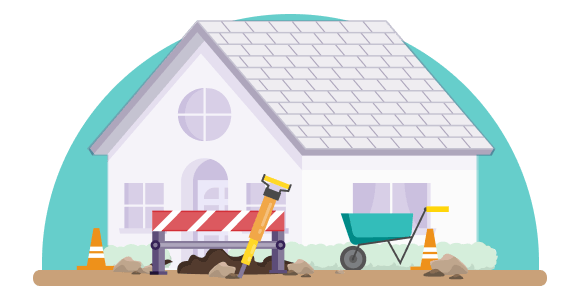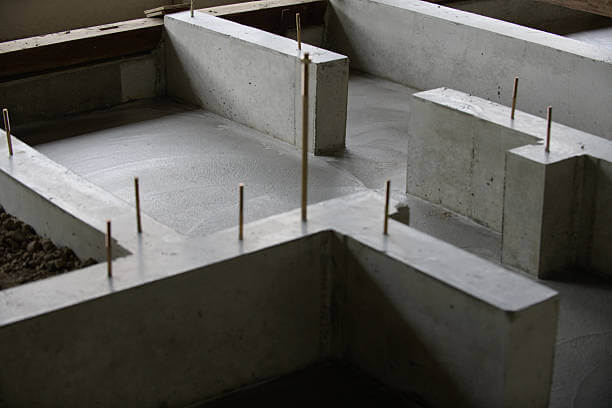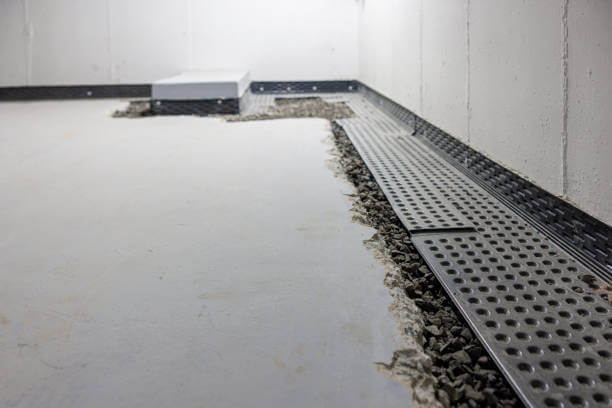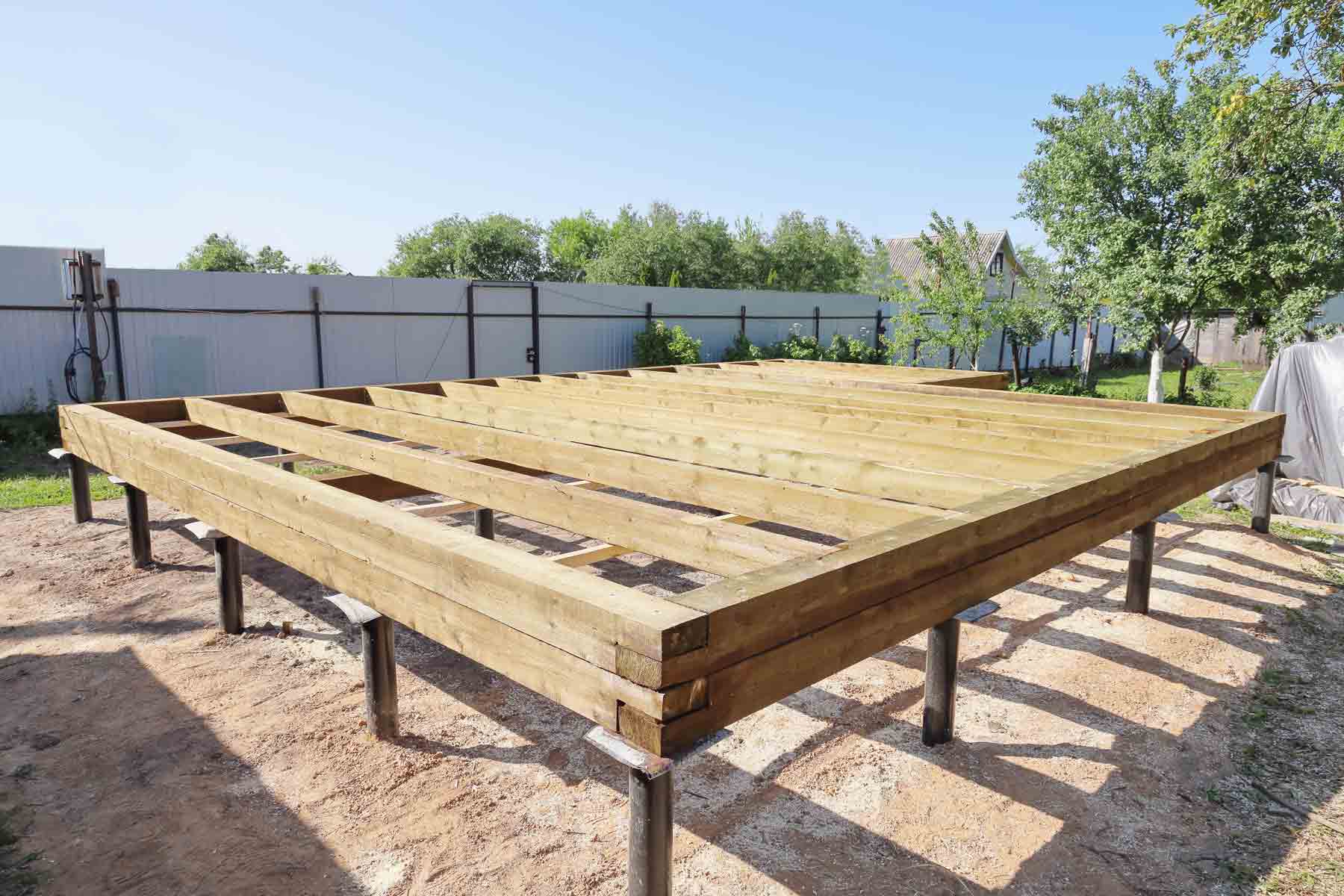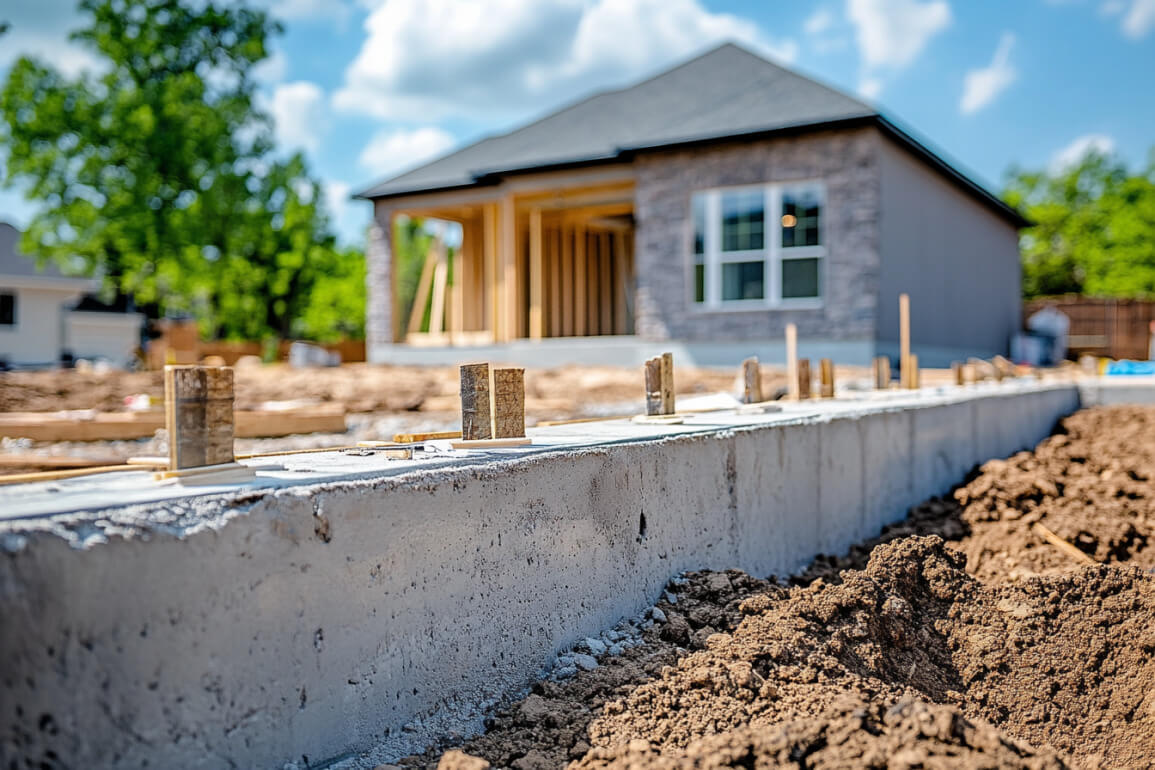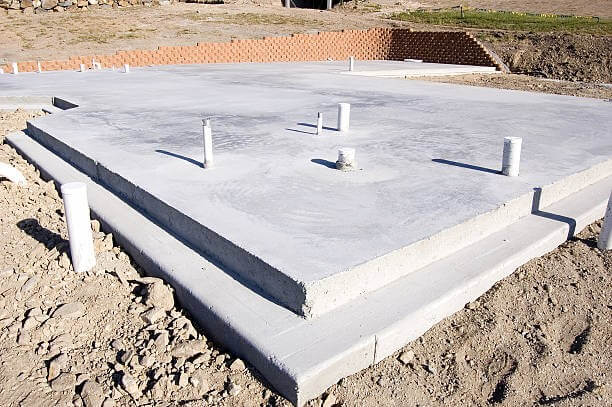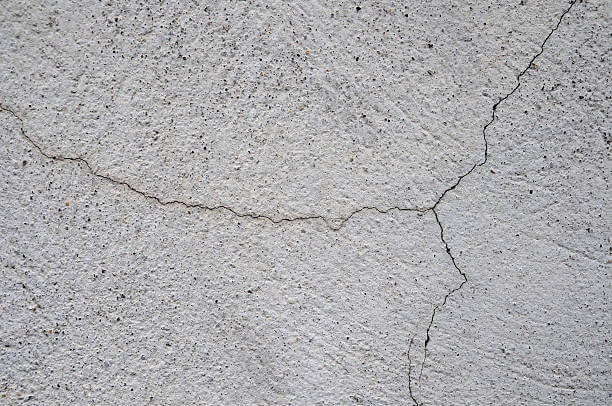What Is a Sinking Foundation?
A sinking foundation happens when the ground beneath your home shifts or erodes, causing the foundation to settle unevenly. This can lead to cracks, slanted floors, sticking doors, and even structural instability if left untreated. Unlike normal settling, foundation sinking requires professional repair to prevent major safety and property damage.
What Causes a Foundation to Sink?
A foundation sinks when the soil beneath it can no longer support the weight of the structure. This usually happens gradually but can accelerate after severe weather or poor drainage. Here are the most common causes:
1. Soil Movement and Erosion
Soil expands, contracts, or washes away over time. If the ground under your home erodes, the foundation loses support and begins to settle unevenly. Sandy or swampy soils are especially prone to erosion.
2. Poor Drainage
Excess water near the base of your home can weaken the soil and create voids beneath the slab. Flooding, clogged gutters, or improperly graded yards all increase the risk.
3. Weather Extremes
Freeze-thaw cycles and heavy rainstorms put stress on soil and foundations. Homes in regions with seasonal climate shifts often experience more foundation movement.
4. Age of the Home
Older homes may not have been built to modern standards. Weak or outdated construction practices increase the likelihood of settlement as the structure ages.
5. Construction or Soil Preparation Issues
If the soil beneath your home wasn’t compacted properly before the foundation was poured, it may settle unevenly over time, causing the foundation to sink.
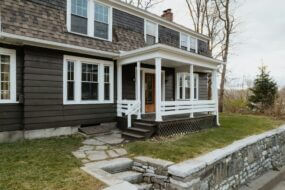
Signs of a Sinking Foundation
A sinking foundation can take years to develop, and early signs may be easy to overlook. Some issues are obvious, like cracks in exterior walls, while others are subtle. Watch for these warning signs:
- Cracked Drywall: Small cracks are normal. But cracks more than 1/8 inch wide, horizontal cracks, or cracks wider on one end are red flags.
- Slanting Floors: Roll a marble across the floor. If it drifts or speeds up in one direction, the foundation may be shifting.
- Leaning Chimney: A tilting chimney develops slowly, but once it’s noticeable, you should act quickly.
- Sticking Doors and Windows: Doors that scrape against the frame or windows that are tough to open may indicate foundation movement.
- Gaps Around Home Features: Look for gaps between cabinets and walls or between doors and frames.
- Musty Smells: A damp or musty basement could mean cracks have opened as the foundation settled.
If you notice any of these problems, contact a professional right away. Early repairs can save time, money, and stress.
» Acting now can save you money later. See our helpful guide on the early warning signs of foundation issues.
What Happens If You Ignore a Sinking Foundation?
A sinking foundation doesn’t fix itself, and the longer you wait, the worse (and more expensive) the problem becomes. Ignoring foundation issues can lead to:
- Structural Instability: Cracks widen, walls lean, and floors become uneven, putting your home’s safety at risk.
- Plumbing and Utility Damage: Shifting foundations strain water lines, sewer pipes, and even electrical wiring, leading to leaks, backups, or fire hazards.
- Water Intrusion: Gaps in the foundation allow moisture to enter, causing musty odors, mold, and basement flooding.
- Reduced Property Value: Homes with unresolved foundation issues are harder to sell. Buyers may require costly repairs before closing.
- Higher Repair Bills Later: Minor repairs in the $2,000–$7,000 range can turn into full replacements costing $20,000+ if ignored.
How to Fix a Sinking Foundation
Contractors use several proven techniques to stop foundation sinking and restore stability. The best method depends on soil conditions, climate, and the extent of the damage. Common approaches include:
- Underpinning: Adding piers or supports beneath the foundation to stabilize and prevent further sinking.
- Mudjacking: Pumping material under the slab to fill gaps and raise low areas.
- Foam Injection: Using expanding foam to lift and support the foundation.
- Reblocking (Restumping): Replacing damaged supports in severe cases.
» Learn more in our complete guide to foundation repair methods.
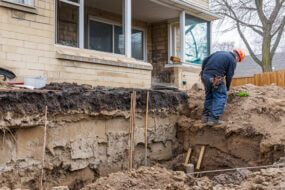
How Much Does It Cost to Repair a Sinking Foundation?
The typical cost to repair a sinking foundation runs between $2,100 and $7,800. Most will pay around $5,000. However, most serious problems can lead to higher costs of $15,000 or more.
Full foundation replacement costs between $20,000 and $100,000, depending on home size. This involves lifting the house, removing the old foundation, building a new one, and resetting the house. The process can take weeks, and you’ll likely need to move out during the work. That adds extra costs for lodging, meals, and travel.
» See our guide on foundation repair costs to learn more.
Bottom Line: Don’t Ignore a Sinking Foundation
A sinking foundation is one of the most serious home issues you can face. Left untreated, it can lead to structural instability, costly repairs, and reduced property value. The good news is that professionals have proven methods, like underpinning and foam injection, to stop further damage and restore your home’s safety.
If you notice warning signs such as slanted floors, cracks, or sticking doors, don’t wait. Early repairs typically cost far less than full replacements and can give you peace of mind that your home is secure for years to come.
Compare top-rated foundations pros in your area.
Read real homeowner reviews, explore qualifications, and view promotions. Modernize makes it easy to browse professionals and find one that will be perfect for your project.
